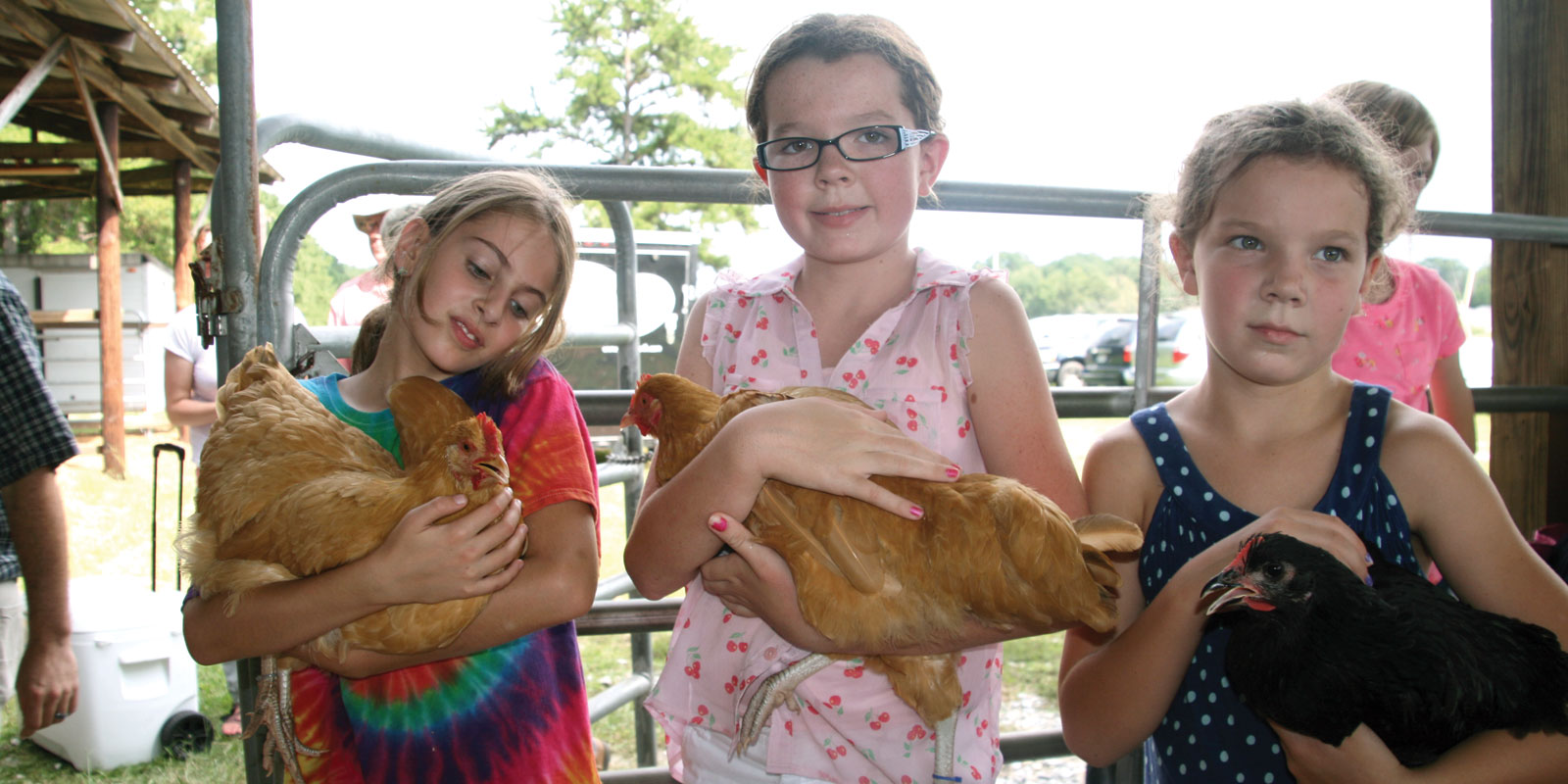
Photos by Jessica Dawson — Lee, Tallapoosa and Chambers counties children participated in this year’s Chick Chain through 4-H. Children as young as 9 were given the opportunity to grow chickens from 2-3 days old to full-grown adults. Many participants put three of their chickens through judging Saturday morning, and Saturday afternoon the county extension auctioned them off to help fund next year’s program – completing the chick chain cycle.
County Extension holds Chick Chain Auction
By Alison James
Associate Editor
Gentle clucking and the occasional crow of a rooster punctuated the morning at the Lee County Fairgrounds Saturday. Children and parents milled around, admiring the rows of chickens lined up for judging. One little girl was employing a toothbrush to carefully groom one of the feathered cluckers.
Saturday’s event marked the culmination of five months of chicken raising, for the 74 children in Lee, Tallapoosa and Chambers counties who opted into the 4-H Chick Chain this year.
“These kids all received chickens from the same hatchery – the only difference is the breeds,” explained Kirsten Holt, one county extension coordinator involved in organizing the program locally. “They take them home and raise them for 20 weeks.”
For a $50 deposit, children are given 18 chicks to raise. After 20 weeks, three chickens of one breed must be returned for the chicken auction, at which time the $50 deposit is refunded. Over and above the $50, the program could require an investment between $100 to more than $1,000 from the participants – all depending on coop materials, feed and other supplies used.
“This is a fairly economical way to get young people into livestock production,” said county extension coordinator Chuck Browne.
About 35 young people took part in the “judging and showmanship” session that took place prior to the auction, during which a judge examined the chickens and then quizzed the participants on their involvement.
This was the second year for the Chick Chain in this area – the fourth year as a state program in Alabama. And although it’s a good time for the children who sign up, it’s also a learning experience.
“They learn building skills,” said Rachel Snoddy, who, along with Tara Barr, coordinated the program in Chambers County. “They have to figure out how much space they need and how to keep predators out.”
Mathematics, animal husbandry and money management are also skills taught by the program, Browne said. That educational aspect is part of what drove sponsorship of the program by Cargill-Nutrena, one of many local sponsors.
“It helps with responsibility and leadership and animal husbandry,” said Cargill Nutrena’s Bubbah Harrison, who added that they will do “anything we can do to help youth and agriculture.”
John Emfinger, 12, from Valley, had the championship pen, which auctioned for a total of $75 for the three Rhode Island Reds. The pen sold to Gary Daly, Emfinger’s grandfather, of Limestone County.
“I am just amazed at the success these kids have had with these birds,” Browne said.

